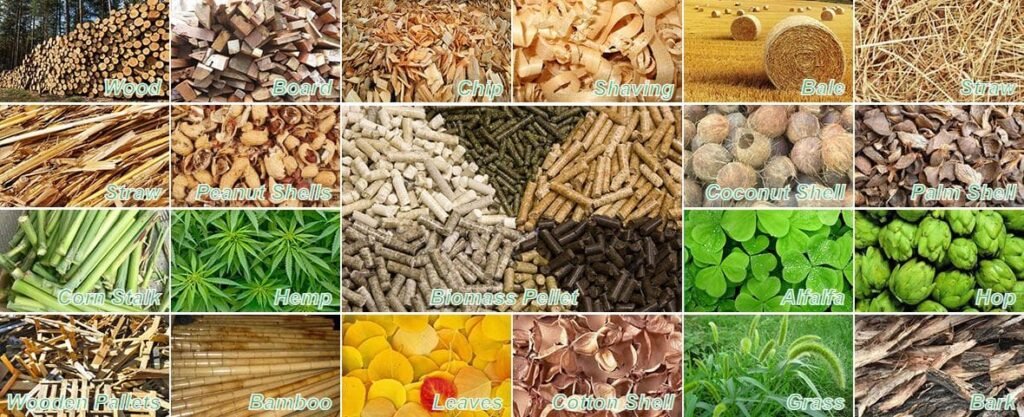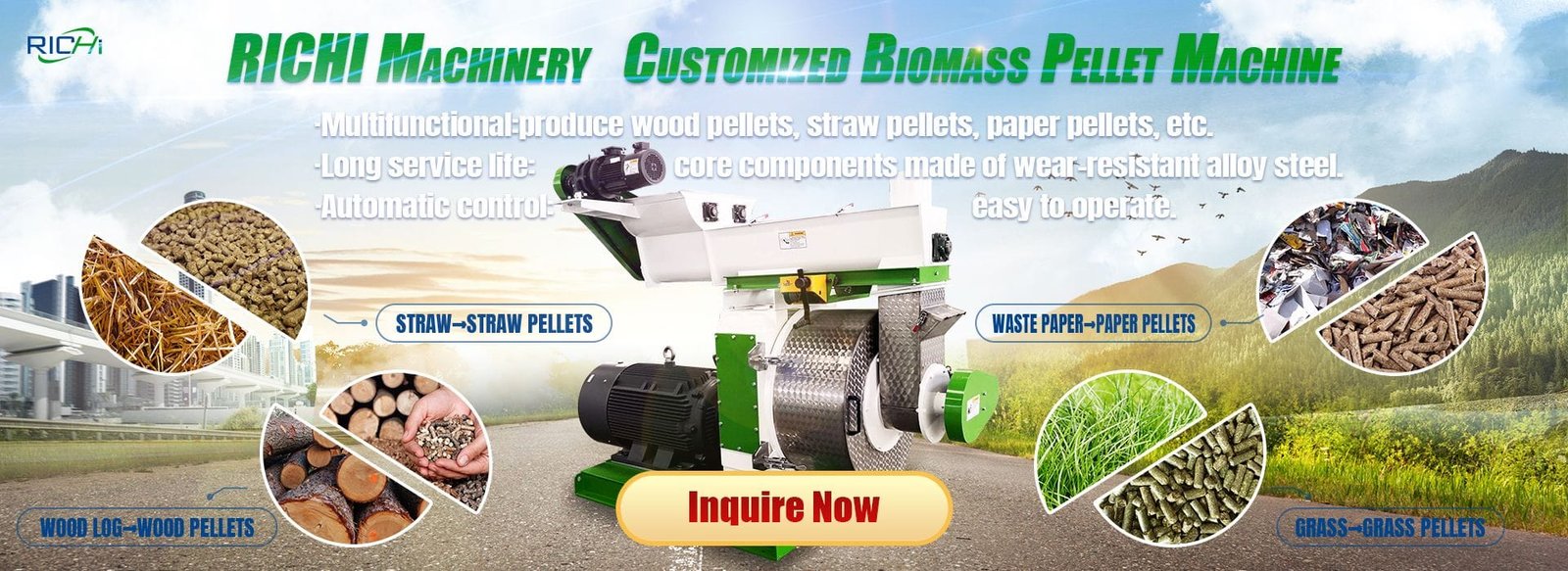While biomass materials are commonly associated with organic fertilizer production, many can also play a significant role in the manufacture of chemical fertilizer pellets. This article examines the different types of biomass materials suitable for chemical fertilizer pellet production, their advantages, and key considerations for their use.
Agricultural Residues
Agricultural residues represent some of the most readily available biomass materials for fertilizer production:
- Crop Stalks: Corn stalks, wheat straw, and rice straw can be processed to serve as fillers or carriers for chemical nutrients.
- Husks and Shells: Rice husks and peanut shells, rich in silica, can enhance the physical properties of fertilizer pellets.
- Sugarcane Bagasse: The fibrous by-product from sugarcane processing can act as a binding agent in fertilizer pellets.
These materials not only contribute to the organic content of chemical fertilizers but also help improve soil structure upon application. (Related post: biomass pellet mill)

Wood-Based Biomass
By-products from the wood industry provide excellent opportunities for use in chemical fertilizer pellets:
- Sawdust: Fine wood particles can act as an absorbent carrier for liquid chemical nutrients.
- Wood Chips: When finely ground, wood chips can be included in fertilizer formulations.
- Bark: Rich in lignin, tree bark can serve as a natural binder during pellet formation.
Wood-based materials can enhance the slow-release properties of chemical fertilizers, extending their effectiveness in the soil.
Industrial By-Products
Several industrial by-products can be repurposed for fertilizer production:
- Paper Mill Sludge: Abundant in cellulose fibers, this material can improve the structure and water retention of pellets.
- Biochar: Created from various biomass sources, biochar can significantly enhance nutrient retention in fertilizer pellets.
- Fly Ash: Although not strictly biomass, fly ash from biomass power plants can be utilized as a filler and source of micronutrients.
These materials often contribute additional benefits, such as improved soil water retention and increased micronutrient content.
Aquatic Biomass
Aquatic plants and algae possess unique properties beneficial for fertilizer production:
- Seaweed: Rich in micronutrients, seaweed can enhance the nutritional profile of chemical fertilizers.
- Water Hyacinth: This invasive aquatic species can be processed to serve as a biodegradable carrier for nutrients.
- Algae Biomass: Certain nutrient-rich algae species can be integrated into fertilizer blends.
Aquatic biomass often adds trace elements essential for plant growth.
Animal-Derived Biomass
Though typically utilized in organic fertilizers, some animal-derived biomass can also be integrated into chemical fertilizer production:
- Bone Meal: High in phosphorus and calcium, it complements chemical nutrient formulations.
- Feather Meal: Rich in nitrogen, it can boost the nitrogen content of fertilizer blends.
- Fish Waste: Processed fish waste can provide both macro and micronutrients for fertilizer formulations.
These materials enhance the organic nitrogen content of chemical fertilizers, potentially improving nutrient uptake efficiency.
Benefits of Incorporating Biomass into Chemical Fertilizer Pellets
- Improved Physical Properties: Biomass enhances pellet durability and reduces dust formation during handling and application.
- Enhanced Soil Health: The organic matter in biomass contributes to better soil structure and increased microbial activity.
- Slow-Release Effect: Certain biomass materials slow down nutrient release, reducing leaching and improving fertilizer efficiency.
- Waste Utilization: Incorporating biomass aids in recycling agricultural and industrial waste products.
- Cost Reduction: Utilizing locally available biomass can potentially lower production costs. (Related post:Biomass fuel Pellet Machine)
Considerations for Using Biomass in Chemical Fertilizer Pellets
- Nutrient Consistency: Ensure that adding biomass does not significantly alter the guaranteed nutrient analysis of the fertilizer.
- Processing Requirements: Biomass materials may need pre-treatment (drying, grinding) before incorporation into fertilizer production.
- Regulatory Compliance: Verify local regulations regarding the use of biomass materials in chemical fertilizers.
- Quality Control: Implement stringent quality control measures to ensure consistent product quality.
- Equipment Compatibility: Confirm that existing fertilizer production equipment can effectively handle biomass materials.
Conclusion
Although chemical fertilizers primarily consist of synthetic nutrients, integrating biomass materials can provide numerous advantages to the final product. From agricultural residues to industrial by-products, a diverse range of biomass sources can be employed in chemical fertilizer pellet production. These materials improve the physical properties of fertilizer pellets, enhance soil health, and support more sustainable fertilizer production practices.
As the fertilizer industry evolves toward more sustainable and efficient products, the incorporation of biomass materials into chemical fertilizer production presents an innovative approach. By carefully selecting and processing appropriate biomass sources, manufacturers can create fertilizer pellets that combine the benefits of chemical nutrients with the soil-enhancing properties of organic matter.
However, it is essential to approach biomass incorporation thoughtfully, considering nutrient balance, regulatory compliance, and compatibility with production processes. With careful planning and implementation, the use of biomass in chemical fertilizer pellets can result in products that are not only effective in delivering nutrients but also contribute to long-term soil health and sustainability.
For details please contact: Pellet Machine
WhatsApp:86 138 3838 9622
Email:enquiry@richipelletmachine.com
